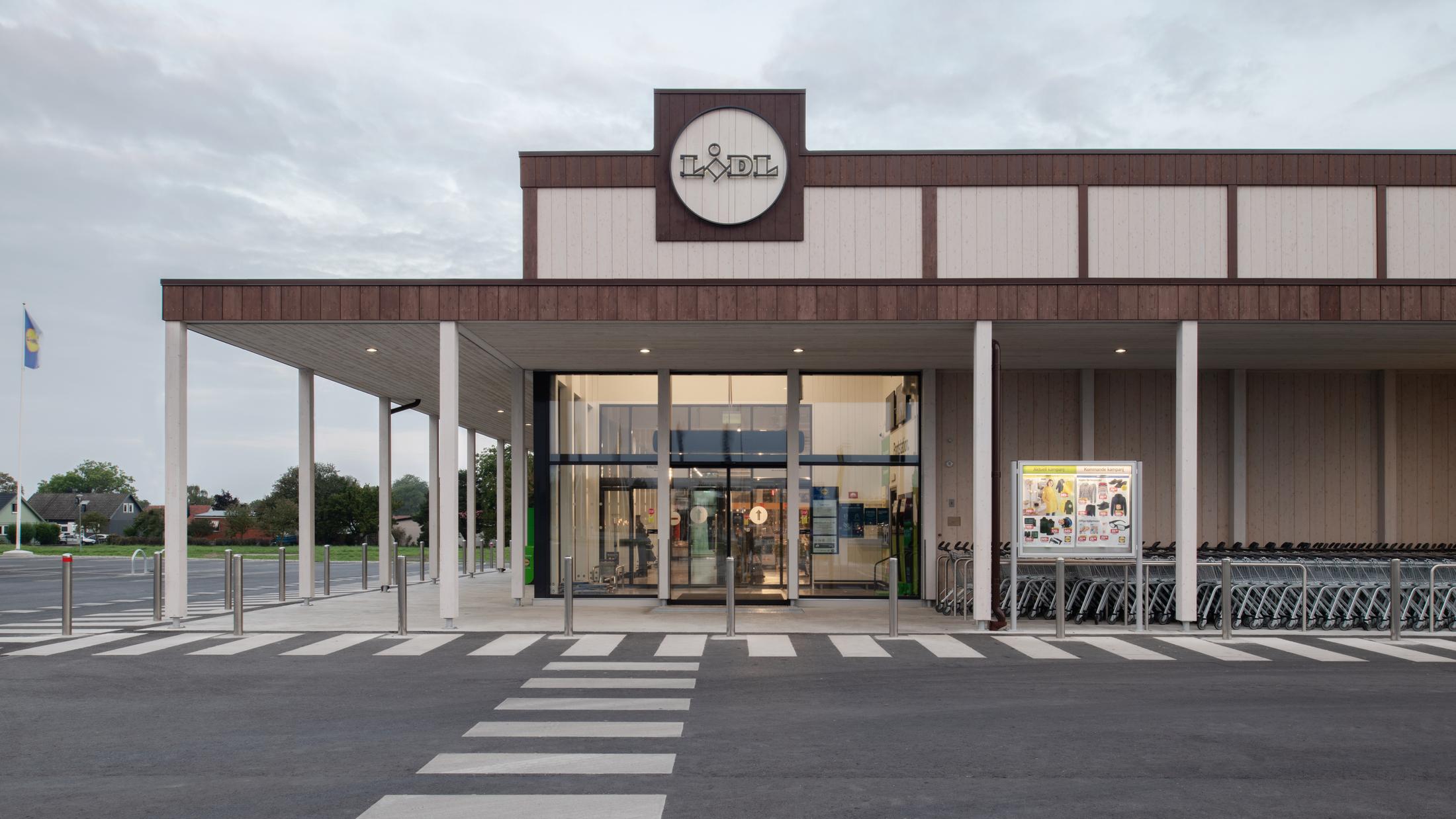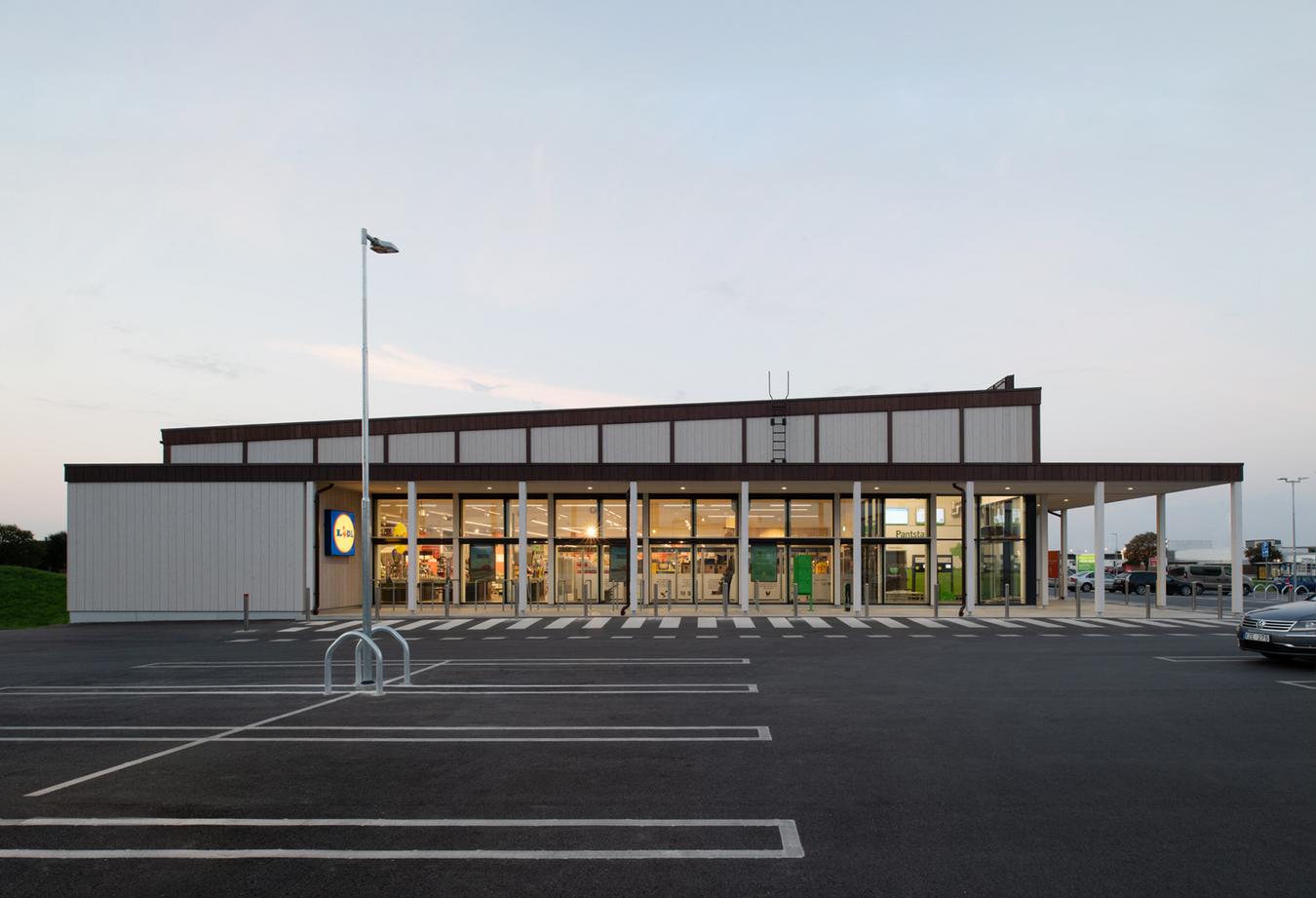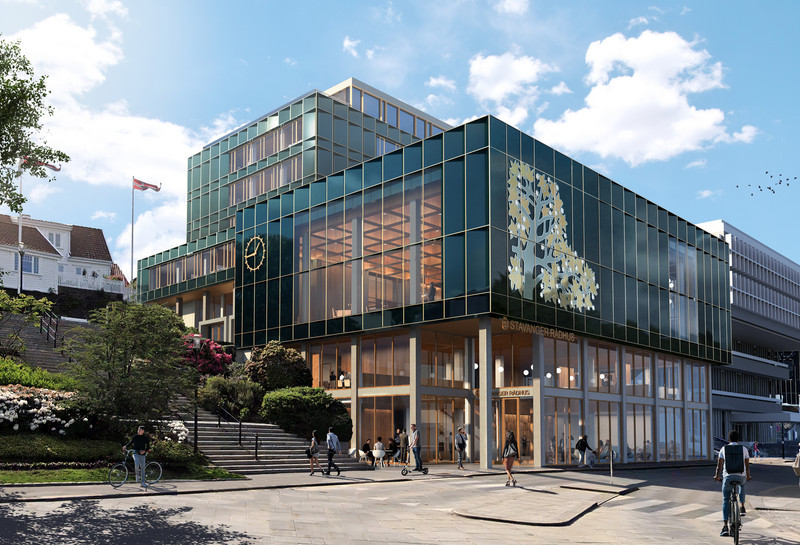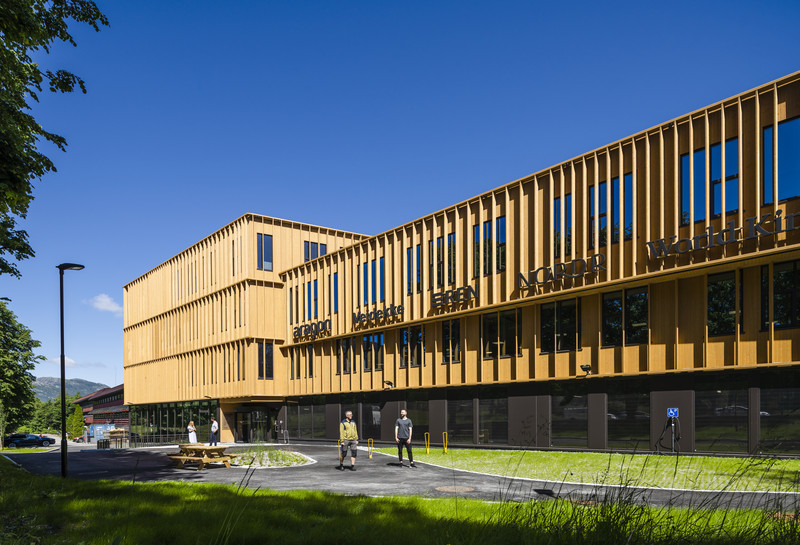
Lidl, Visby
Sweden’s first zero CO2 building
In collaboration with Lidl, we have developed Sweden’s first zero CO2 building through a pilot project for Sweden Green Building Council. Timber was the solution chosen for reaching the ambitious environmental objectives.
Together with the industry, Sweden Green Building Council has developed a certification for climate-neutral buildings. This is an extremely demanding certification process, which was drawn up to enable Sweden to achieve its climate goals. When Lidl Sweden established itself on the island of Gotland, the store construction became a pilot project for the new certification process.
Net-zero emissions over the building’s life cycle
The goal is to achieve net-zero emissions over the building’s life. This requires a long-term, holistic approach and close collaboration between the client, architect, and building contractor. By optimising the plan and making careful choices in aspects such as the construction, materials, and energy system, the environmental impact can be minimised both during the construction and operational phases.
The Visby store is constructed entirely from solid timber and came out at 228 of the maximum permitted 300 kg CO2e/m2 gross area. The concept for the Visby store consists of several interacting solutions to achieve certification requirements for both BREEAM-SE Excellent and NollCO2.
Wood and biodiversity
The store is built entirely of wood with both wood panels, wooden walls, beams, and roofs. The building has been equipped with both solar panels and sedum roofs. The plot also has eco-zones and planting areas that contribute to biodiversity. Installation systems and refrigeration and freezing systems are powered by natural refrigerants and heat recovery is used for the best possible energy performance. The emissions that could not be avoided are compensated with photovoltaic systems at the store and at a warehouse building in Örebro, which is estimated to generate solar electricity corresponding to approximately 1 million kWh / year.
Reuse of waste heat
Grocery stores consume very high levels of energy, but there is great potential in reusing waste heat. By optimising the building volume, material consumption and energy use are reduced, which in turn reduces the building's CO2 impact. This required a well-thought-out adaptation of the building as a whole - facades, glass surfaces, insulation, solar shading, and energy systems.
The project won Construction of the Year 2021 (Årets Bygge), in the category industry/shop. It was also nominated for the Sweden Green Building Awards 2021, in the category Zero CO2 project of the year.



